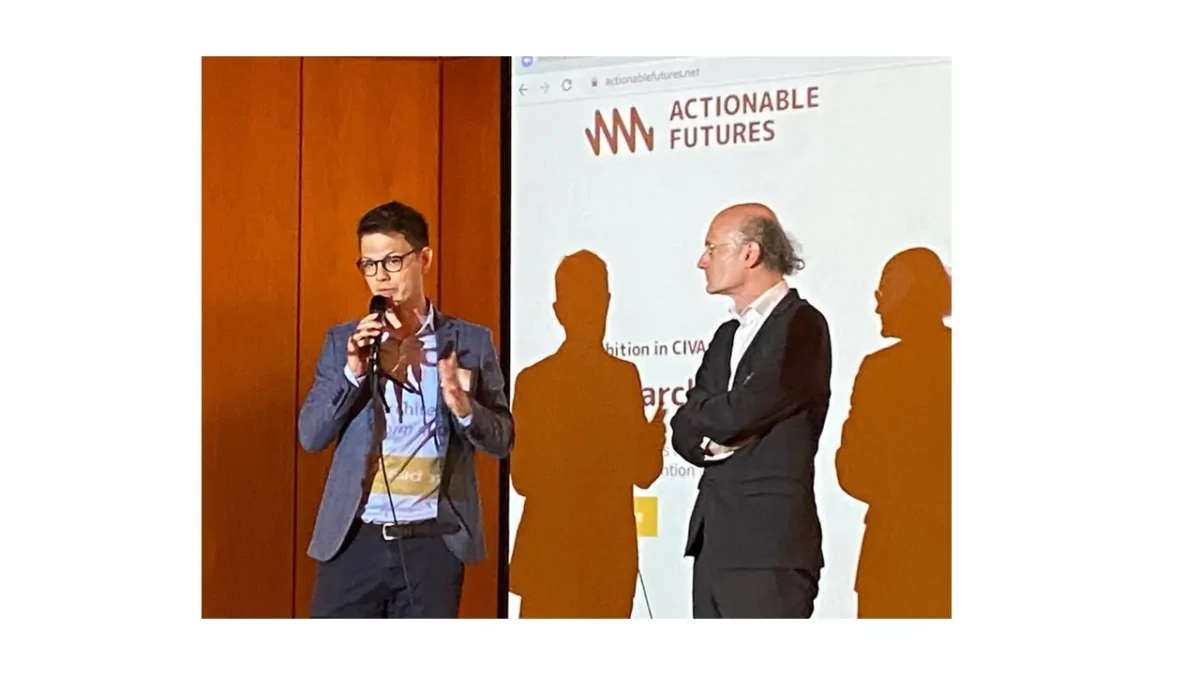On Thursday 09 and Friday 10 June, a new COST Connect conference took place bringing together experts and stakeholders from various fields across culture, environment, and economy to exchange on the crucial topic of achieving sustainability through cross-collaborations. With 15 COST Actions participating to present their case examples, this COST Connect took place as a side event of the Festival of the New European Bauhaus Initiative in Brussels, sparking inspiring and fruitful exchanges to build sustainable societies.
“If the European Green Deal has a soul, then it is the New European Bauhaus which has led to an explosion of creativity across our Union.” said President of the European Commission Ursula Von der Leyen when introducing the new European Bauhaus initiative (EBI). As it is clearly recognised that the transition towards a sustainable and inclusive society can only occur through interconnectivity, the New European Bauhaus initiative was designed to bridge the world of science and technology with art and culture. When it comes to unleashing the potential of multidisciplinary collaborations, COST Actions are the perfect examples illustrating the limitless opportunities arising from the connections created among experts. As supporting research networks that are interdisciplinary and inclusive is at the core of the COST’s mission, highlighting the potential offered by the COST Actions as well as the concrete examples falling from the diverse research topics was timely in this context.
The European Bauhaus Initiative: transforming through interconnectivity
Kicked -off on the Wednesday 09 June afternoon in the premises of the CIVA-Architecture Museum of Brussels, the first part of the programme featured keynotes presentations from speakers ranging from renowned architects and designers to policymakers, researchers and leaders of creative industries.
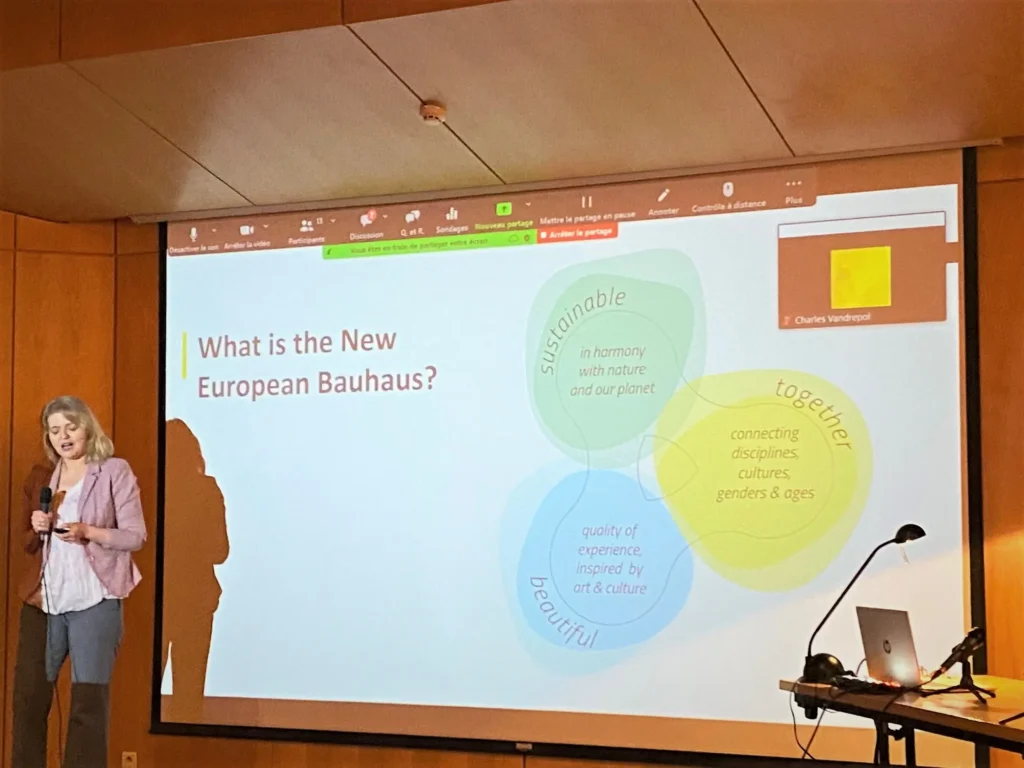
Amongst them, Ms Laura Hetel, Policy Officer for Urban Systems for the European Commission mission on “Climate-Neutral and Smart Cities” has set the context for the European Bauhaus Initiative, stressing how this project reflected the shift of paradigm around the perception of transformation. “When we launched the Green Deal, we faced the need to give a meaning to “transformation”, to give it a soil. So that people can feel that they are engaged, that they are part of this transformation.” she explained. Transformation used to be seized in an isolated way indeed, setting a context where challenges were tackled separately and successively.
The European Bauhaus Initiative is about experiences that are:
Enriching
Sustainable
Inclusive
But as circularity and regeneration are at the driving-sits of the Green Deal agenda, it is now a “must do” to gather all sectors’ efforts into one intersection, to integrate arts and culture’s insight into the debate, and to foster citizen participation. With 2050 targets ahead, the need for European cities to deliver climate neutral plans by 2030 puts the potential offered by the EBI at the forefront of their decarbonisation projects, allowing them to tap-into their local actors’ capacities to unlock transformation of our society through concerted efforts.
Dr Kirsten Dunlop, CEO of the EIT climate-KIC, stressed as well for her part that transformation requires a systematic dynamic as our current markets’ logic will lead to an increase beyond the required 1,5 ° threshold target by 2050. Innovation does help addressing the carbon footprint reduction but there is still the need to change how innovation is approached, and to move away from competition to dive into interconnection. Ms Dunlop explained that designing for interconnectivity is the new approach for innovation, presenting as a pathway for unlocking change through a fresh way of thinking where arts and design get a special place in the process.
15 COST Actions on stage
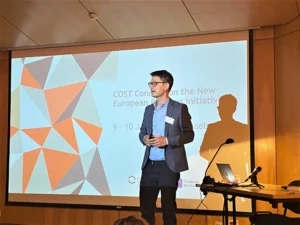
COST Action are multidisciplinary research networks funded by COST with the purpose of investigating a topic during a four-year lifetime. Bringing together researchers and stakeholders from every horizon to share their expertise and knowledge to advance research, COST Actions are “bubbles” of interconnectivity growing ideas into breakthrough projects impacting our societies. With a bottom-up approach, the logic around these networks is flexible as they are open (researcher can join at any time) and inclusive.
To illustrate the diversity of topics covered by the COST Actions and how these help tackling sustainability from every corner while embracing the logic of the EBI, 15 COST Actions participated in this event to provide an overview of their research area while presenting some of the achievements.
The variety of the COST Actions’ research areas included topics such as restorative sustainability for urban development, fostering improvement of biosecurity, materials innovation but also community valorisation, citizen science and media accessibility. A wide broad range of activities where creativity can deploy its full possibilities at the encounter of multidisciplinary researchers.
Interactive Discussion Rounds
On Friday 10 June, the second day of this COST Connect on creative industries, COST Actions participants were gathered at the COST premises to engage in an interactive session.
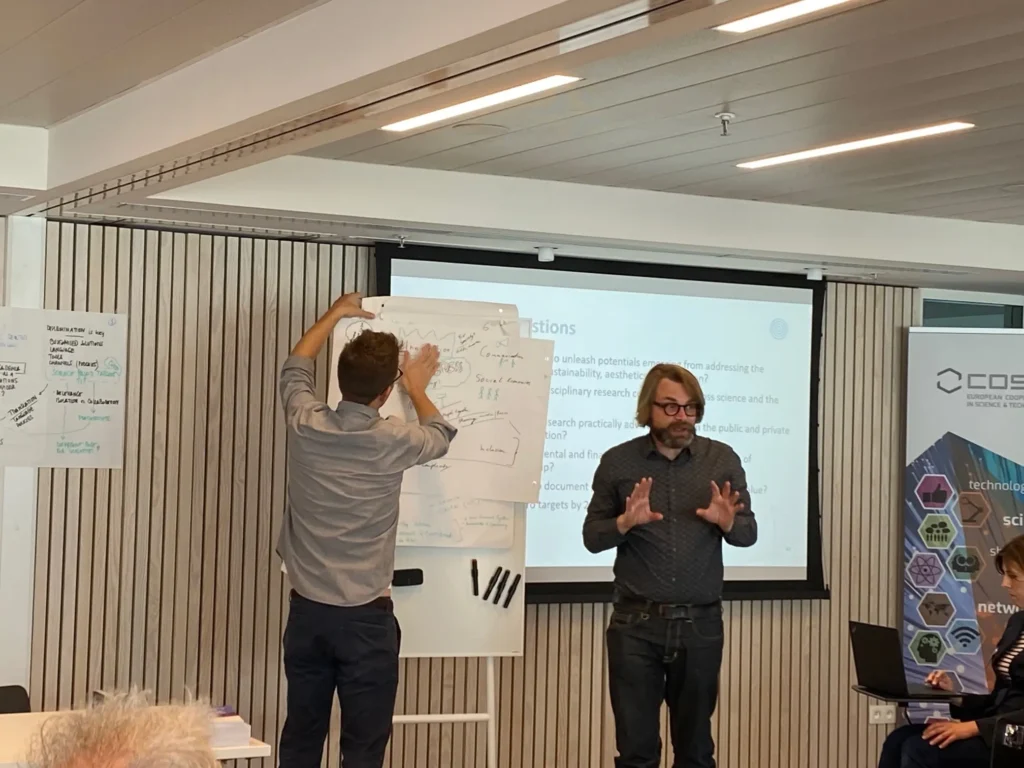
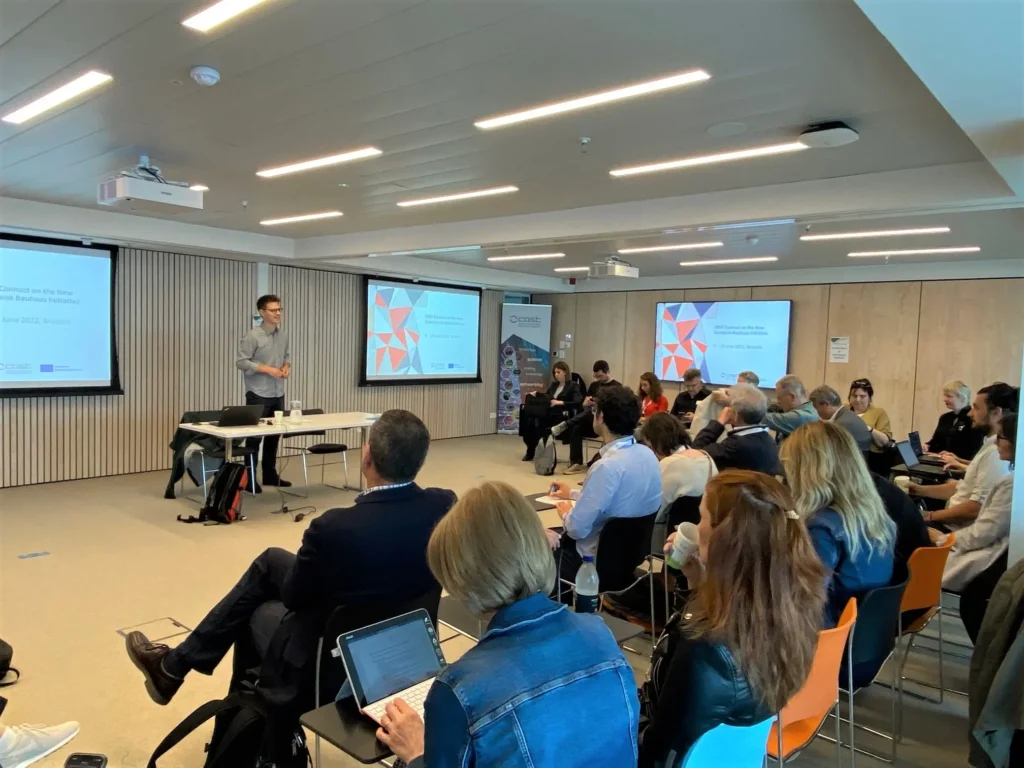
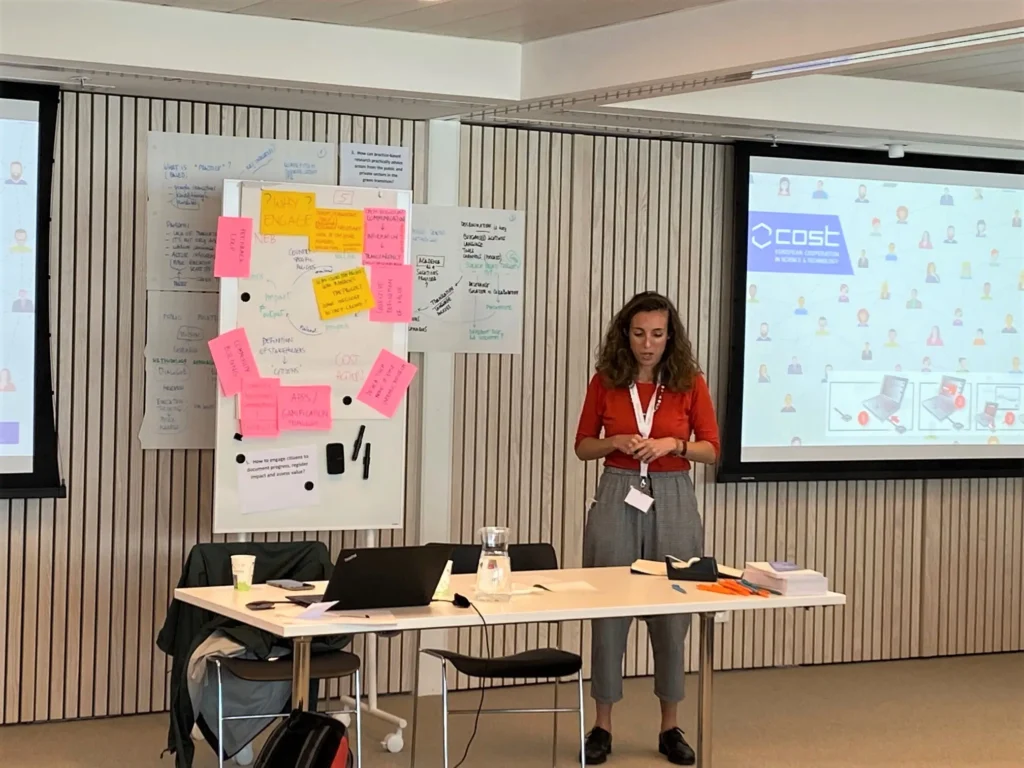
With the purpose of reflecting on different items and creating ideas for novel solutions, groups were created in the format of a ‘world café’, and provided input on five specific questions namely:
1. How to rethink innovation to unleash potentials emerging from addressing the complementary layers of sustainability, aesthetics and inclusion?
2. How to strengthen cross-disciplinary research collaboration across science and the arts?
3. How can practice-based research practically advice actors from the public and private sectors in the green transition?
4. How to connect environmental and financial sustainability in new models of cultural entrepreneurship?
5. How to engage citizens to document progress, register impact and assess value?
COST Actions are open and can welcome new researchers at any time.
Participating COST Actions at this COST Connect on the New European Bauhaus Initiative
- REthinking Sustainability TOwards a Regenerative Economy
- The Geography of New Working Spaces and the Impact on the Periphery
- Europe Through Textiles: Network for an integrated and interdisciplinary HumCanities
- Urban Tree Guard – Safeguarding European urban trees and forests through improved biosecurity
- Advanced Engineering and Research of aeroGels for Environment and Life Sciences
- Multi-disciplinary innovation for social chanCge
- Writing Urban Places. New Narratives of the European City
- Underground4value
- Intergovernmental Coordination from Local to European Governance
- Holistic design of taller timber buildings
- New Exploratory Phase in Research on East European Cultures of Dissent
- Dynamics of placemaking and digitization in Europe´s cities
- Leading Platform for European Citizens, Industries, Academia and Policymakers in Media Accessibility
- European Middle Class Mass Housing
- Transnational Collaboration on Bullying, Migration and Integration at School Level
Further information
